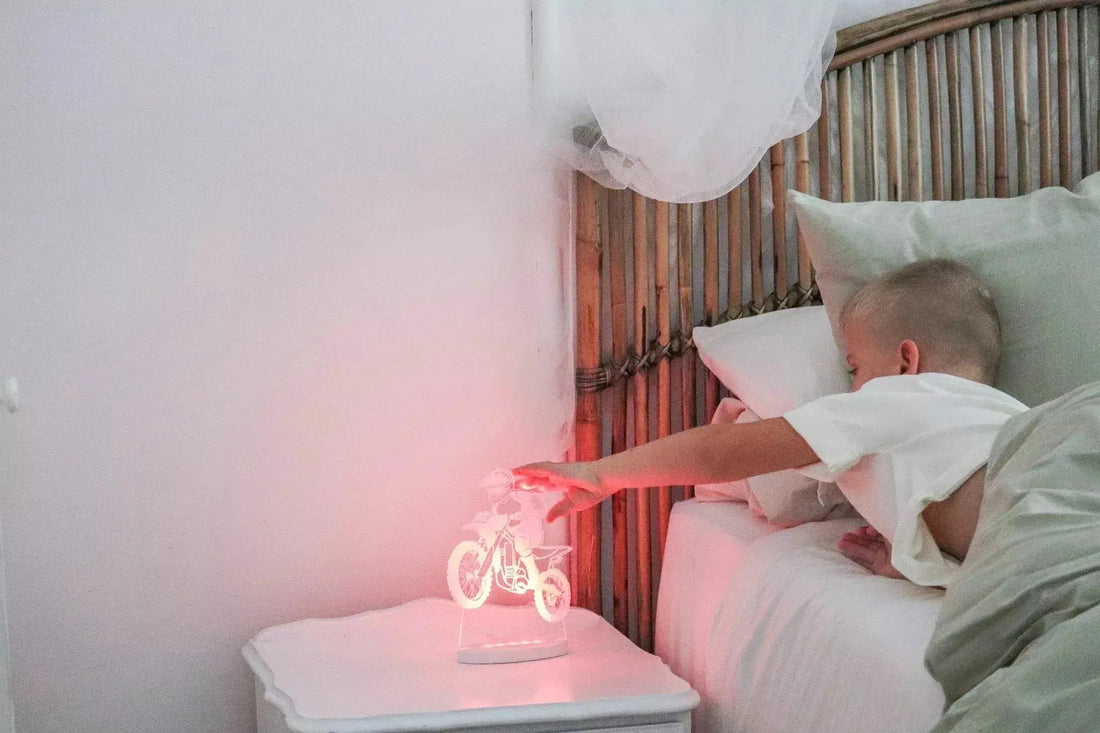Melatonin, Red Light and Sleep
Melatonin and sleep - what's the connection?
Melatonin seems to be a buzz word at the moment. Its not surprising really if you have a child who wakes through the night or simply cannot get to sleep in the first place, you will be looking for whatever help you can get to stop those sleepless nights.
The reason melatonin’s sleep-inducing effects are in the news a lot is because as the day turns to evening, the pineal gland in your brain starts to produce melatonin and releases it into your bloodstream. This sends you into a relaxed state that helps to promote sleep.
Understanding melatonin...
Melatonin is a hormone that your brain produces in response to darkness. It helps with the timing of your circadian rhythms (24-hour internal clock) and it synchronizes your sleep-wake cycle with night and day and facilitates the transition to not only sleep, but consistent, quality sleep. It can also lower body temperatures and help to relax your muscles, which helps you to sleep.
Why is red light important for melatonin regulation?
To make the most of this naturally occurring hormone, you want to work with it, not against it.
This is where the colour of your bedroom night light is important.Now contrary to what you may have seen elsewhere, a red light does not produce melatonin, it just doesn’t inhibit the production of it.
Research has shown that exposure to red light can improve sleep (The Sleep Foundation, 2023).
Katie from the Baby Sleep Company explains why; red is the only colour that does not have a negative effect on the secretion of Melatonin, the sleepy hormone. In fact, she recommends our Duski night lights and sleep aids to her clients because they have the option of a red light source.
Now a red light doesn’t improve your sleep as such, it just doesn’t interfere with the production of Melatonin. This means that your body can do what its designed to do and get sleepy when it turns dark, not only that but you will sleep longer through the night.
White and blue lights, including lights that are emitted from TV screens, fluorescent lights and portable devices can delay the release of Melatonin and reset your body’s circadian rhythm. This means it will take longer to fall asleep, you’ll have less REM (dreaming) sleep and ultimately, you’ll wake up feeling sleepier. It's important to note that even though your eyes are closed you can still recognise the colour of the light.
Red night light for sleep
If you are having trouble getting your little one to sleep or having sleepless nights, we strongly recommend that you choose a night light with a red light option. It may take a couple of weeks to get used to a different colour, but red light won’t interfere with their circadian rhythm and melatonin production, meaning bubs will be able to get to sleep and sleep well.





